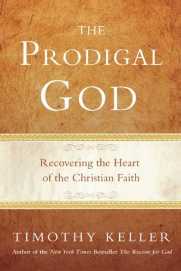
The Prodigal God: Recovering the Heart of the Christian Faith by Timothy Keller
I started reading The Prodigal God: Recovering the Heart of the Christian Faith by Timothy Keller right when I got my Kindle, blazed through most of this amazing book, and then promptly got distracted by a few other books… Well, I finally finished! Keller’s thesis is summarized neatly:
Jesus’ great Parable of the Prodigal Son retells the story of the entire Bible and the story of the human race. Within the story, Jesus teaches that the two most common ways to live [the younger son's estrangement from the father and the elder son's self-righteousness before the father] are both spiritual dead ends. He shows how the plotlines of our lives can only find a resolution, a happy ending, in him, in his person and work.
This is a very quotable and profound book, I hope you will read on (Sorry, it’s going to be a long one!)!
Keller does a wonderful job of exegeting the parable from Luke; while there were similarities with Nouwen’s Return of the Prodigal Son, Keller’s take is more theological to Nouwen’s more reflective spiritual journey. That being said, don’t let “more theological” dissuade you from delving into this book; it is a worthy read for a long time Christian (even necessary I would say, we tend to be Elder Brothers), a new Christian trying to find a home in the faith, or someone who is seeking the faith but been put off by the Church. We all, and I do mean all, find ourselves, at different points in our lives, as either the estranged younger brother or the strictly moral older brother, both of which we find unsatisfactory.
Jesus uses the younger and elder brothers to portray the two basic ways people try to find happiness and fulfillment: the way of moral conformity and the way of self-discovery. Each act as a lens coloring how you see all of life, or as a paradigm shaping your understanding of everything. Each is a way of finding personal significance and worth, of addressing the ills of the world, and of determining right from wrong.
But, as I’m sure you are fully aware, they both fall short. What we need is the Father. Here is the crux of the situation:
Neither son loved the father for himself. They both were using the father for their own self-centered ends rather than loving, enjoying, and serving him for his own sake. This means that you can rebel against God and be alienated from him either by breaking his rules or by keeping all of them diligently.
Bummer! Fortunately the Father invites both sons back into his home and the feast that awaits.
The gospel is distinct from the other two approaches: In its view, everyone is wrong, everyone is loved, and everyone is called to recognize this and change.
Amen and amen. After being asked what is wrong with the world, G. K. Chesterton replied, “I am.” Keller notes, “That is the attitude of someone who has grasped the message of Jesus.”
We deserve alienation, isolation, and rejection. The point of the parable is that forgiveness always involves a price – someone has to pay. There was no way for the younger brother to return to the family unless the older brother bore the cost himself. Our true elder brother paid our debt, on the cross, in our place.
The elder brother in the parable was self-righteous and angry that his father could allow the younger brother to return, it had a literal cost to the elder brother. Thankfully our true elder brother in Jesus was willing to pay for our return to the Family. John Newton is quoted from one of his hymns:
Our pleasure and our duty,
though opposite before,
since we have seen his beauty
are joined to part no more.
A wonderful summary of the work of Christ I would say. This is the Gospel. We are broken and redeemed freely by grace. We were (are?) the estranged younger brother but that doesn’t mean we have to become the self-righteous elder brother. Our Father is inviting us in to the party, his eternal feast. We should accept.
Hearing the word “prodigal” applied to God seems odd to us because we usually think of the “prodigal son” which usually has the connotation of someone who has screwed up. This is a misunderstanding of the word “prodigal”. Prodigal means to spend money or resources freely and recklessly; to be wastefully extravagant. As Cori puts it in her review, “the reader learns that God is recklessly extravagant with us. He’s spent everything on us. He is truly a prodigal God. I found this concept to be achingly beautiful.” Indeed.
Keller leaves us with this passage out of Isaiah and so will I:
On this mountain the Lord of hosts will make for all peoples
a feast of rich food, a feast of well-aged wine,
of rich food full of marrow, of aged wine well refined.
And he will swallow up on this mountain
the covering that is cast over all peoples,
the veil that is spread over all nations.
He will swallow up death forever;
And the Lord God will wipe away tears from all faces,
and the reproach of his people he will take away from all the earth,
for the Lord has spoken.

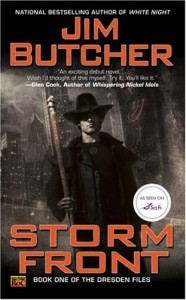

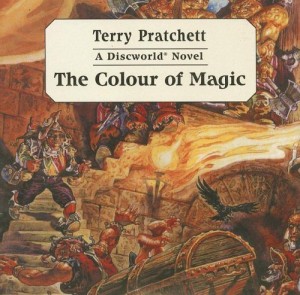
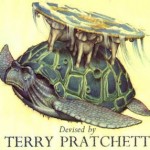
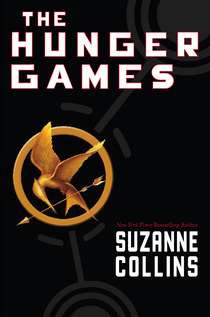


Recent Comments